Podcast: Play in new window | Download
Subscribe: RSS
In 1972, Alfred Sole, a first time filmmaker, made an X-rated film called ‘Deep Sleep’.
He didn’t know much about adult films or the industry, so he shot it in his hometown of Paterson, New Jersey and using a cast and crew made up of friends and family members.
This meant that the local lawyer, banker, policeman, high school teachers, funeral home director, the mayor’s wife, even Alfred’s wife and his mother were part of the film-making group. It seemed like everyone in Paterson knew someone who was involved in the making of ‘Deep Sleep’.
And so predictably when it came out it was a smash hit in New Jersey, with long lines of people breaking box office records trying to get into the theaters to see it.
But not everyone was impressed. And what followed was one of the most remarkable and notorious prosecutions of an adult film in American history. First the filmmakers were indicted on a state basis under an ancient anti-fornication statute, and then on a federal level for interstate transportation of pornography. Suddenly Alfred Sole found himself at the center of a storm. He was under attack both from the law and from everyone who’d helped him make the film in the first place.
On this Rialto Report, the people involved speak out for the first time in 40 years. We speak to –
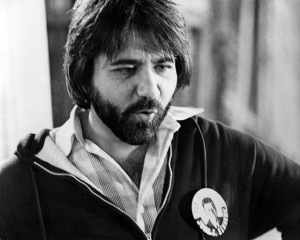 Alfred Sole, Deep Sleep’s director
Alfred Sole, Deep Sleep’s director
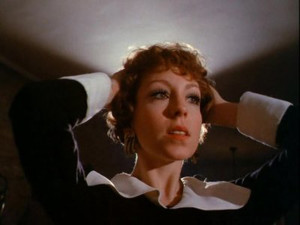 Kim Pope, Deep Sleep actress
Kim Pope, Deep Sleep actress
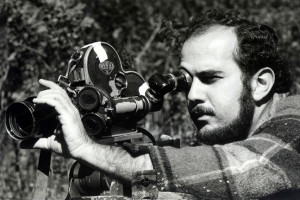 Joseph Friedman, Deep Sleep cinematographer
Joseph Friedman, Deep Sleep cinematographer
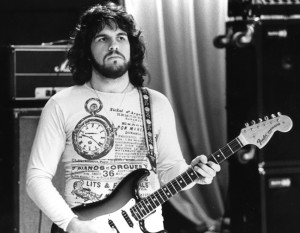 Butch Taylor, Deep Sleep’s soundtrack composer
Butch Taylor, Deep Sleep’s soundtrack composer
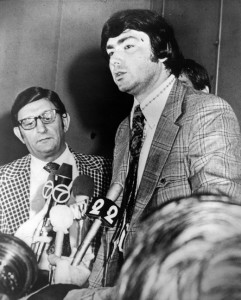 John Niccollai, Assistant District Prosecutor
John Niccollai, Assistant District Prosecutor
This episode’s running time is 69 minutes.
The music playlist for this episode can be found on Spotify.
_______________________________________________________________________________________________
Meeting Alfred Sole
To set eyes on Alfred Sole is to like him instantly.
He’s just welcomed me onto the Warner Brothers soundstage in Los Angeles where he works. At 75, Alfred is technically of retirement age, but he remains an in-demand production designer on popular television shows like MacGyver, Veronica Mars and Castle.
As I approach him, Alfred smiles broadly and extends his hand. He has a boyish face and a soft-spoken, warm manner. He’s of average height with salt-and-pepper hair. He’s like your friendly uncle, or your favorite person to sit next to at the neighborhood bar.
But looks can be deceiving, so I have to ask myself: Is this really the man who in the early 1970s was at the center of a national scandal about a pornographic film titled Deep Sleep? A film he was rumored to have shot in his parents’ home in Paterson, New Jersey using a cast and crew made up of family and friends? And it wasn’t just those close to him who participated in the movie—it was alleged that many in his suburban town had taken part, including a local lawyer, banker, police officer and funeral home director. Hell, even the mayor’s wife, high-school teachers, and Alfred’s mother were said to have been part of the erotic production.
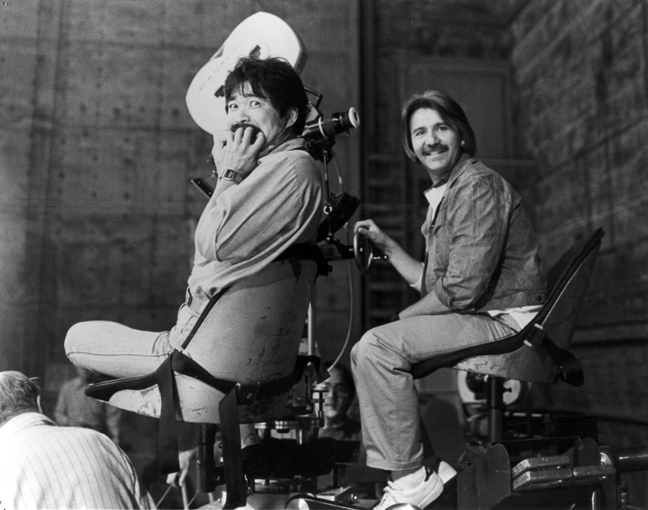 Alfred Sole (right)
Alfred Sole (right)
What followed was one of the most notorious national prosecutions of adult film in American history.
Is this the man once described by the government as ‘Public Enemy Number One’?
As I sit across from Alfred today, his phone rings. It’s his ex-wife back in Paterson. She wants to know if the person wanting to talk about Deep Sleep has arrived. He gently tells her we’re about to start our interview, then proceeds to hold the phone away from his ear to protect himself from the volume.
It’s been 45 years since the film was splashed across the news, but Alfred’s ex has a loud-and-clear message for him: Say nothing. Nothing at all. No good can possibly come from re-visiting the past. Some stories are better left untold.
*
The Origins of an Accidental Pornographer
Alfred Sole is a born-and-bred Jersey boy from Paterson, an industrial community of 150,000 residents, 20 miles west of New York City. He vividly remembers the Paterson of his youth in the 1950s.
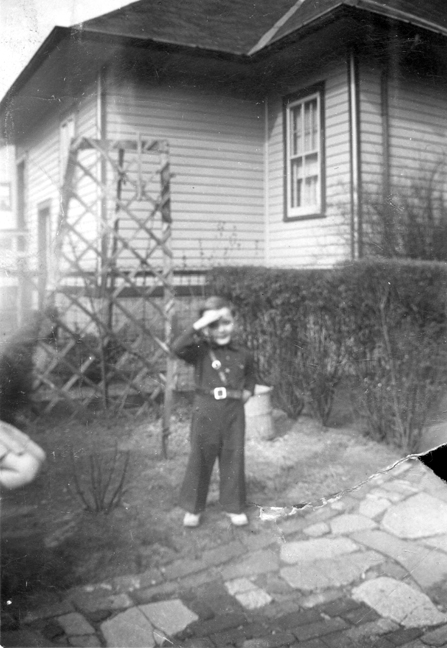 Alfred Sole as a child
Alfred Sole as a child
The suburban city was a mix of working- and middle-class neighborhoods with clearly defined boundaries. There was the Italian enclave, and there was the Irish enclave. The wealthier families—all doctors and lawyers and mostly Jewish—lived by Eastside Park. The working-class Catholics—among which Alfred counted himself—mostly lived by the city’s landmark Great Falls of the Passaic River. Alfred was always curious about the wealth residing in Eastside Park, so much so that one of his main goals in high school was to date a Jewish girl. He went so far as to pretend he was Jewish because the girls he desired weren’t allowed to date outside their religion.
Alfred’s creativity extended beyond his ability to craft a suitable backstory. He had a love of architecture, design and fashion that he honed at the University of Florence in Italy and then used to open a fashion boutique in New York City after graduation. The business was a success, clothing celebrities of the day like Andy Warhol and Clive Davis in custom-made suits. But while Alfred was doing well, he was distracted by a dream—one that had been with him ever since he was a young boy.
Alfred Sole wanted to make movies.
As Alfred explained it, “I wanted to be a film director more than anything else in the world. For me, everything started from the love of movies. I used to go to the cinema all the time when I was a kid. My parents couldn’t afford a babysitter so they would dump me at the theater at 10 in the morning and pick me up just before dinnertime. I devoured film magazines. To this day, if I don’t get to a movie on a Saturday I feel uncomfortable.”
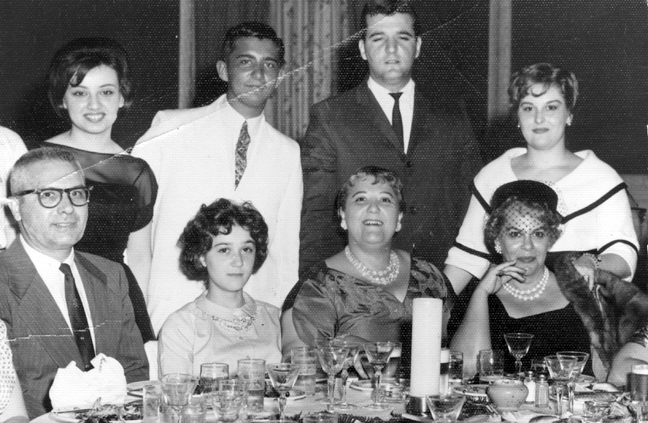 Alfred Sole (top, second from left)
Alfred Sole (top, second from left)
One day Alfred went out and bought himself a 16-millimeter Bolex camera. He started making short films, leaning on friends and neighbors in Paterson for help. They may not all have been the best actors or crew, but they were available and eager. And Alfred was prolific, working every free moment to realize his dream.
But sometimes dreams cost money. And while Alfred’s clothing boutique was doing well, it wasn’t doing fund-a-feature-film well. So during a regular card game he hosted at his Paterson home, Alfred turned to his friends for advice. He explained how he wanted to make a movie—specifically a Western—but he didn’t know how to fund it. The guys around the table began teasing him, spouting less-than-helpful ideas to raise the desired funds. Then one friend put forward a fateful suggestion: if you make a porno, I’ll give you five grand right now.
Alfred dismissed the offer, laughing it off as a joke. But soon others around the table piled on. And before he knew it, he’d raised $25,000.
“You want an X-rated movie? Alright, I’ll make one if you’re serious about the money,” Alfred said.
They all replied yeah. Hell, yeah.
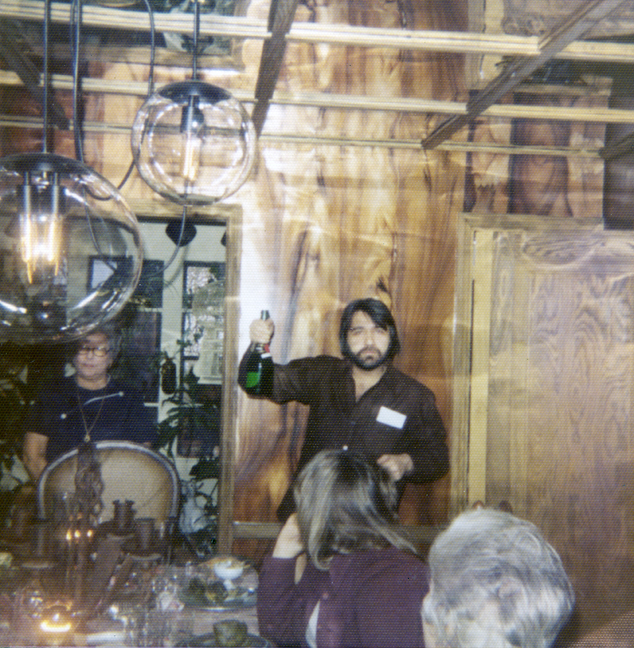 Alfred raising film money
Alfred raising film money
These were all guys in their thirties. Playboy-reading, horny guys from New Jersey. But thanks to them, I now had the budget to make a film. “The guys who threw in the money… one was a judge, one was president of a bank, and there was an accountant.”
Many investors in early porn films were motivated by the chance to turn a healthy profit. Gerard Damiano’s Deep Throat had just come out and the papers were filled with tales of the film’s earnings. With its simple story, accessible humor, and famous party trick, Deep Throat helped expand the audience for adult films from raincoat-clad middle-aged men to mainstream couples curious about—and titillated by—the hoopla.
The promise of profit was a motivating factor for Alfred’s card buddies, but Alfred remembers that they were spurred on by more prurient interests too. “They wanted to come to the casting sessions. They wanted to be on the set. It was that time period, you know? It was the sexual revolution. These were suburban guys with a little bit of cash, hearing about wife swapping and open relationships—and they wanted in. It was in the air in the 1970s.”
Alfred now had the financial support he needed, but he hadn’t a clue about adult films. He said he’d never seen one—and when Alfred tells you that, you believe him.
So he headed to Times Square for a cinematic education, and found himself judging the films in a way the average viewer might not. “I thought, God, these people don’t wear makeup. They don’t have good costumes. The sets look like shit. There’s no plot, and no story. A guy takes a bag of groceries out of a woman’s hands and before you know it, they’re doing it. Knock on the door, and she spreads her legs.” While he may not have started off wanting to make a porn film, Alfred was sure he could make a better one. Referring to Al Goldstein’s penis-shaped scale for rating adult films, Alfred said, “I want to get five stars on Screw magazine’s peter meter.” An eloquent example of aiming high.
*
The Making of ‘Deep Sleep’
Hoping to cash in on the success of Deep Throat, Alfred called his movie Deep Sleep. Then he set about writing the script.
“The story of Deep Sleep focuses on Harry, who is in love with his niece. One day he finds her having sex with some guy and in a jealous rage, shoots them both. In despair, Harry goes to his niece’s funeral and climbs into her coffin to have sex with her. After that, Harry can’t get it up anymore so he goes to the Maharishi Summa Cumma to learn how to enjoy sex again.
Alfred pauses, as if realizing the ridiculousness of it all: “Listen, it wasn’t a great plot but I was just trying to make it fun.”
With the story settled, Alfred set about casting his movie. As he watched films during his pornographic crash course, Alfred had seen the same faces popping up over and over—but had no idea where to find these people. So he put an ad in the local trade magazine Backstage, making clear he was looking for actors willing to have sex on film. Alfred wasn’t sure what he was going to get—or if he’d get any responses at all—but soon replies started pouring in.
“Boy, I saw some strange things. One guy called and asked, ‘Do you need anybody who can blow himself?’ I told him to come on down. I mean, I had to see that. The next day, a reasonably attractive man shows up and proceeds to put his money where his mouth is, so to speak. It was only years later I learned that he went by the name Dr. Infinity—for obvious reasons—and that he was a political activist who once tried to steal a copy of the Gutenberg Bible from Harvard University. You can’t make this stuff up.
“Then I got a call from a woman who called herself Honeysuckle Divine and said she did something to Tchaikovsky’s ‘1812 Overture.’ She showed up with a tape recorder, a large container of talcum powder and a broom. She quickly disrobed, laid on her back, put a bunch of powder in her vagina and hit play on the tape recorder. Well, when the guns went off in the song, she emitted little puffs of smoke from down below. It made me proud to be an American.”
Finally, Alfred met Kim Pope. Like Alfred, Kim had grown up in New Jersey. She began acting as a child, playing Snow White, Becky Thatcher, and walking down the yellow brick road more times than she cared to remember. After moving to New York as a young adult, Kim answered an ad for an adult film. She had no qualms about having sex in front of the camera. Kim wasn’t shy about her body and thought porn would be a great way to learn about filmmaking.
In addition to being a petite and attractive blonde, Alfred remembers Kim as a talented actor and extremely kind. He knew right away that he wanted her to play Harry’s niece.
Kim had a similar response to Alfred. When asked about meeting him for the first time, Kim said, “My first impression was that he was a very nice guy, very sincere. I think Deep Sleep was his first film and he really wanted to do a good job, within the limitations of a minuscule budget and a short shooting schedule. It was all really sweet, and I liked him very much so I was on board.”
For the male leads, Alfred leaned on local actors. The part of Harry was played by Joseph Rose, a Shakespearean hopeful on the fence about participating in an adult movie. A local muscleman named Anthony DeMarco, who played Kim’s boyfriend, had no such qualms about appearing in a porn film.
While there was no doubt that Deep Sleep would be marketed as an adult film, Alfred didn’t give much thought to the fact that he was making a pornographic movie. For him, Deep Sleep was simply a chance to be involved in making a real film: “I never saw it as a porno. I mean it was X-rated and, yes, people had to fuck and do all this other stuff, but I just never saw it that way.”
Lead actress Kim Pope had similar feelings about adult films. And while she never had a problem making them, she did worry her participation might damage her acting career down the road. But she justified her involvement by telling herself these films weren’t going anywhere. They’d play in scuzzy theaters in sleazy neighborhoods like Times Square, nobody would see them, and then they would disappear. It never occurred to her that one would stick around.
It’s easy to dismiss Alfred and Kim’s justifications in today’s age of streaming video and reissued films, but in the early 1970s the future landscape was far from clear. Many aspirational filmmakers—including Barry Sonnenfeld, Wes Craven and Francis Ford Coppola—worked on sex films as a way of learning about the business. And you could often find crew members who worked with established directors like Woody Allen picking up extra money on the sets of porn films.
But those were already reasonably seasoned film participants. Alfred Sole had no idea how to make a porn film. To be honest, he didn’t know much about making any kind of film. Kim Pope picked up on this straight away. “As we got into things, it became very evident that none of these people had ever made a film before. Alfred had roped in his buddies and neighbors, and they were having a great time. But they were not pornographers—these were suburban, very straight people. It felt like middle America. Go to the next PTA meeting and look around the room—that’s who these people were.”
It was truly a homegrown affair. Just like when he’d made films as a kid, Alfred asked his friends and neighbors to help out behind the scenes and on screen as extras. And as he started shooting in Paterson, New Jersey in the summer of 1972, Alfred was in heaven. “The idea of making a movie—just the idea—with lights and cameras and actors was my dream. When I opened the door to my house for the crew to enter, it was the most exciting day of my life.”
Along with those offering their support was Alfred’s then-wife—the same woman now warning Alfred not to speak about Deep Sleep. She worked with Alfred’s mother to organize the production, prepare meals for the crew and generally help out any way she could. The one area she and Alfred avoided discussing was the hardcore sex. When asked why, Alfred answered “The sex stuff wasn’t the fun of it. The fun was making the movie.”
Alfred understood that some of his cast and crew wouldn’t be comfortable around a hardcore film shoot. So he shot all the non-sex scenes first, then went back to film the required sex. This division made it easier for many of Alfred’s friends and family to turn a blind eye to the fact that Deep Sleep was, in fact, an adult film.
The few professionals whom Alfred hired weren’t adult film veterans either, and they approached the shoot with a mix of curiosity, trepidation and excitement. Joseph Friedman was hired as the cinematographer—and it was his first time on a porn set. He had reservations about working on an adult movie but was desperate for film experience.
Actually he had one even bigger concern. “I guess the greatest fear in your mind is that you’re going to walk around with this constant erection and have to sit down a lot to hide what’s going on” Joseph admits. “But the reality is that it is the most unsexual thing you could possibly imagine to witness. It’s like bolts going into nuts.”
 Kim Pope (aka Mary Canary), Anthony De Marco (aka Anthony Dema)
Kim Pope (aka Mary Canary), Anthony De Marco (aka Anthony Dema)
Alfred’s lack of experience filming sex may have contributed to the shoot’s unerotic atmosphere. He struggled with how to direct the performers, explaining “I didn’t know how to talk to these people. The first day I thought, what do I say? Put your penis in her vagina? But by day three I was like OK, come on. We have a deadline.”
He may have gotten used to it, but questions like “Did we get the cum shot?” and terms like “chopped meat” never became second nature to Alfred. He found filming the sex scenes completely strange and numbing. And this experience didn’t end on set either—during the production Alfred found himself utterly devoid of any sexual desire in his private life too.
Actress Kim Pope also found the sex on adult films far from arousing. She was playing a role and focused on providing a realistic experience for the audience, not to mention trying not to kick the cameraman in what were often close quarters.
The shooting schedule for Deep Sleep was hectic. It was made all the more difficult by some of the locations Alfred wrote into the script, including a funeral home. Alfred had helped a friend design the business a while back and was looking for a favor in return. To save on set design costs, the funeral director allowed Alfred to shoot between services, taking advantage of the flowers and other trappings mourners had arranged for their loved ones.
“I remember it was like the Keystone Kops” Alfred said. “There were two funerals going on that day. I stole the flowers from one funeral. We took the body out of the coffin. We had to move fast because we had to be out in a couple hours. It wasn’t treated disrespectfully, but… we had to get these two people fucking in a coffin real quick, you know what I mean? It was crazy.”
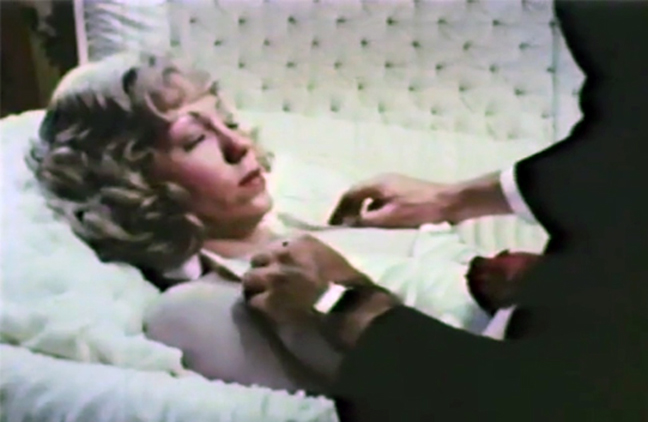 Kim Pope laid to rest
Kim Pope laid to rest
The strange circumstances weren’t lost on the crew. Cameraman Joseph Friedman remembers, “I walked into the funeral parlor and exclaimed ‘Alfred, you did a great of job setting this up.’ He said, ‘Oh, no, no, no. This is a real funeral that’s going to take place at five this afternoon and we need to be done before they come in.’ I asked done with what and Alfred answered ‘the scene where Kim is in the casket and Harry gets in and fucks her.’”
As usual, Alfred carefully separated the filming of sex scenes from the rest of the film: “I filmed my whole family crying in front of the coffin. My mother was in the scene. My aunt was in it. We even had the mayor’s wife in it. Then we made them leave, and brought in Kim and Joe Rose to have sex in the coffin.”
But few other scenes were as sad—and many were downright funny. Alfred breaks into peals of laughter as he describes a scene with a character named Dr. Dicktor. As part of a thorough medical examination of an attractive young woman, the good doctor places a tongue depressor between her legs and asks her to cough.
Less humorous were performance issues afflicting some of the male actors on set. Local performer Anthony DeMarco was particularly affected. Kim Pope remembers trying to bolster the actor’s confidence as she and Alfred waited for what seemed like hours while Anthony tried to arouse himself. “Alfred had warned me that he’d never been in an adult film before and that he was very nervous. It’s very hard for the men. So I said, ‘Don’t worry. I’ll calm him down. I’ll walk him through it.’ But he was scared to death.”
Some of the seasoned adult stars had performance issues too. “I didn’t know porno stars could come to work and not get an erection. But it was a daily problem, and after a while my politeness went away,” Alfred said. “If someone couldn’t get an erection, I was like a madman. I remember having a temper tantrum, screaming, ‘Hey, you’ve got to get it up here. This is costing me a lot of money. You guys are paid to get a hard-on. You came to me bragging that you have the biggest dicks in the world, and now you can’t get them up?!’ At one point I actually used a friend who was visiting the set to stand in for one of the porn guys. So if you watch the scene, you’ll see the pubic hair goes black, blonde, black, blonde. To this day, the guy’s wife doesn’t know that it was actually him that was screwing on film.”
For the last day of shooting Alfred and the crew descended on a stately home, a location he’d wanted to use all along. He didn’t have a permit, but decided to take his chances. “We just grabbed the shot. Most of our stuff was grabbed. It was low-budget filmmaking, guerrilla filmmaking. I only found out later that the house belonged to an archbishop in the Catholic Church.
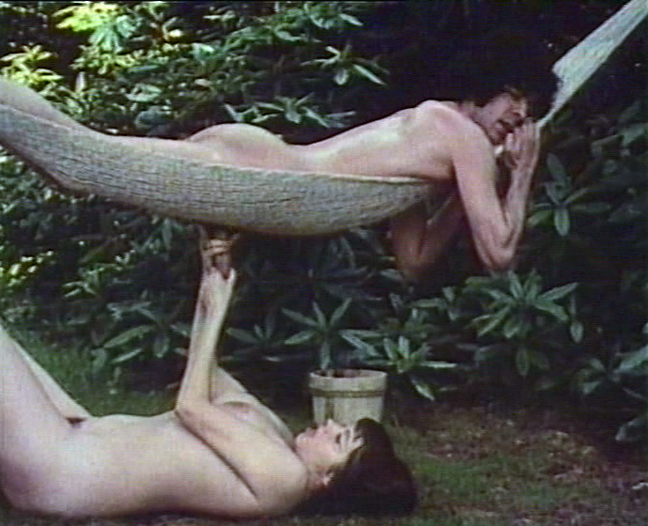 Jamie Gillis, in hammock
Jamie Gillis, in hammock
“As we wrapped that day I remember being satisfied with how it had all turned out. The filming had gone very well. We were pretty much on schedule and had got most of our desired shots. So I sent everyone home and prepared for post-production, which is where the hard work really comes in.”
*
The Premiere
Like filming, editing went smoothly for Alfred. When he was done cutting the film, Alfred decided he wanted to commission some original music. So he turned where anyone would turn in those circumstances—to his wife’s 16-year-old cousin.
Butch Taylor spent most of his teenage years down in the basement with friends playing guitar, bass and drums and making recordings. They had a band—and now an opportunity for a professional gig. It would be unpaid, but it would be their first big shot.
The problem was, Butch and his friends legally weren’t old enough to watch a porn film. Alfred made an exception and screened his film for the band. Kim Pope joined them because she wanted to see the edited work as well. As they sat viewing the movie, Butch had the urge to compliment her on her acting, but was unable. It was the first time he’d seen anyone have sex, and he was struck speechless. Butch and his friends wound up re-watching the film over and over in the basement as they wrote and played the accompanying music.
With editing and sound mixing complete, Alfred was ready to look into distribution. It was time to find out whether Deep Sleep was good enough to show in Times Square. Two theater owners dominated the grindhouses of 1970s New York. One was Chelly Wilson, a Greek immigrant who found success in Times Square real estate. Alfred remembers taking the film to screen for Chelly. “She was a really interesting lady. She started by telling me how she came from Greece and first had a pushcart that she sold hotdogs from, then used her earnings to get on the real estate ladder. She was a really successful woman by this point, so I was really nervous. As I screened the movie for her, she sat chain-smoking and talking to another woman in Greek. She occasionally cackled with laughter which I took as a good sign.
“Then at a certain point she said, ‘No more’—and that signaled the end of the screening. She told me the movie was great, but then gave me a list of all the things I’d need to change in order for her to exhibit it. These were the rules of making porno in the 1970s, and to get distribution you had to meet them: You had to have a certain number of cum shots and make sure you showed the man pulling out to finish. You had to have at least one lesbian scene. It was basically all the stuff I had cut out because I found it too crude. So I went back and added the hardcore shots back in, and then we secured distribution.”
When finalizing the film credits, Alfred respected the wishes of friends and family who chose to remain anonymous. But as for himself, Alfred didn’t want to hide. “I wanted my name on it. Maybe it was in part an ego trip, but I believed in the film and didn’t think I’d done anything wrong. I made a movie, and I didn’t care if it was X-rated or not. It’s like an artist who signs his name at the bottom of a painting. I signed my name on the bottom of this painting in my life. It was a labor of absolute love.”
When Deep Sleep was finally released, Alfred was the proudest person in Paterson. He remembers standing in front of a local cinema marquee showing his film and feeling like a kid in a candy store. As he stared beaming with pride, more and more people showed up to see the movie. Soon enough there were long lines. It seemed to Alfred like all of Paterson was there to see his film and the theater owner pretty much confirmed it. He told Alfred Deep Sleep was out-grossing The Poseidon Adventure, selling out every night.
But not everyone was able to see the film. When soundtrack composer Butch Taylor and his high-school friends tried to get into the theater, they were stopped cold at the box office. Butch showed the cashier his school ID to prove that his was the name on the film poster behind her, but the response was still a hard no.
Still, other people who had helped out on the film were able to see it—and to many it was a bit of a shock. While from the beginning Alfred had told them that there would be hardcore sex in the movie, seeing it was believing. Alfred recalled being at the theater and literally seeing mouths drop open. He could hear people whisper things like, “That couch they’re fucking on!? I can’t believe I’ve sat on it so many times.”
The buzz continued outside of the theaters. Alfred recalls going to a friend’s wedding and hearing a couple of guys talk about him while he was relieving himself in the men’s room. They seemed to be fighting over who knew Alfred best. And Alfred was enjoying it. “I remember I felt a little bit like a celebrity. I was proud. And it was fun.”
Little did Alfred know that events were about to take a sharp turn.
*
Everyone’s a Critic
While Deep Sleep continued to perform well at the box office, the film started attracting attention for the wrong reasons. And one man in particular took an interest—his name was John T. Niccollai.
Niccollai had recently been appointed first assistant prosecutor for Passaic County. When he started the job, he got into the habit of personally going through all the mail that came in from residents. He considered it to be like taking the community’s pulse. Even though the county is so close to New York City, he found Paterson a much more conservative environment.
In the fall of 1972, concerned citizens began contacting the prosecutor’s office about a local film that was being shown, and Niccollai said the volume of complaints quickly grew into an avalanche. Some protests came from residents that only heard about the film once it hit the theaters, others from people who had actually been part of the film but had no idea it was going to be so explicit. But perhaps the straw that broke the prosecutor’s back was when members of the clergy began contacting his office, outraged that the archbishop’s house had been included in such a cinematic abomination.
For Niccollai, it all led to one conclusion: “If you make it easy for people to do things that are offensive, you’re going to attract similar people to the jurisdiction. It’s going to cause other people to come in and make this type of movie here.”
When Alfred caught wind of the fact that the prosecutor’s office was looking into his film—all thanks to complaints from the Catholic Church—he was furious: “Niccollai wasn’t spurred on by community complaints. My film was shown in theaters where many other X-rated movies had played before. He was solely motivated by the church because I had supposedly insulted the bishop. And if you think about the history of the church and what it’s done to mankind, it’s really incredible. The church has done a lot more damage in the name of God than I did with my tiny little film in Paterson, where people paid money to see and enjoyed it.”
Members of the church decided to protest the film. They formed a human chain in front of the most popular theater in Paterson to prevent people from seeing Deep Sleep. Those who made it through were greeted by protesters shaming them as they came out—all caught by local news cameras covering the demonstration.
Soon there were warrants out for the arrests of those responsible for the film, and well as for those that appeared in it. Kim Pope remembers the first time she heard about the trouble when she called home to let a friend know she was on her way: “My friend said, ‘Don’t come home. The FBI is on our doorstep and they’re looking for you.’ I asked him if he was sure it was me they wanted as I couldn’t think of any reason they’d have for talking to me. I even laughed, telling him obviously they’ve got the wrong person. But he said ‘Kim, this is serious. There have been two agents on our doorstep for three days round the clock, just waiting for you.’ So I went to stay with some friends and figure out what the hell was going on. It took about a week to learn that the reason for their interest was the film I’d shot in New Jersey. I was facing up to 28 years in prison for a selection of some truly bizarre charges.”
And bizarre the charges certainly were, because it was actually pretty difficult to prosecute someone with making a pornographic film in 1972. This was a year before the Supreme Court case ‘Miller v. California’ established what came to be known as the ‘Miller Test’ to determine if a work was obscene. The only recent precedent Niccollai had to go on was a 1964 Supreme Court decision where the lead justice famously said about obscenity, “I know it when I see it.”
So if Niccollai was to be successful, he needed to get creative: “I knew that if you spend some time in a law library, you’re always going to be able to find something that is compatible with the course of action you want to take. So I went into the library, did a lot of research, and came up with something that would help us get the film out of our county.”
To find his legal weaponry, Niccollai went back in time—to 1796 to be exact. He found an anti-fornication law from the 18th century that was technically still active in New Jersey. It was an ancient statute prohibiting people from having—and in some cases even thinking about—sex.
Kim Pope couldn’t believe what she was hearing when she finally learned what she was being prosecuted with. “I was charged with fornication, conspiracy to fornicate, acts of carnal indecency, conspiracy to commit acts of carnal indecency and, I swear to God, private lewdness. These were old, old laws that had been around for hundreds of years, and nobody had ever bothered to take them off the books. I mean, if you enforce those laws, then every person over the age of 12 would be in jail. I don’t know anybody that hasn’t conspired to fornicate, whether they succeeded or not. It was just so absurd I thought they had to be kidding.”
To be fair, Niccollai saw the absurdity in the laws too. He understood that prosecuting everyone who engaged in intercourse outside of marriage was a ridiculous thought: “I’m not going to sit here and tell you that in my tenure as first assistant prosecutor, we initiated thousands of prosecutions for adultery or fornication. We didn’t. But the fact is the laws were on the books and we knew we could use them. Is that a problem with our system? Maybe. This was my introduction to the power of the prosecutor.” And Niccollai aimed that power at Deep Sleep.
The next step for the prosecution was to get information that tied Deep Sleep to the filmmakers. So Niccollai obtained a search warrant for Alfred’s house and, accompanied by a slew of assistants, made his way over.
“When they raided my house, that was scary” Alfred remembers. “It was like a B-movie. They knocked down my door, and they went through everything. They tore up the sofa. They trashed my house. They came at me like I was this super-criminal. They were grabbing everything and anything.”
Niccollai walked away from Alfred’s house with some photo stills of the film being made and several artifacts, including a whip he was convinced was used in the movie. Niccollai took this evidence to a grand jury and was able to get the indictments he sought.
Alfred quickly reached out and warned those that had helped him on the film. First he called cinematographer Joseph Friedman and suggested that if he had an address book with information about anyone connected to the film, he should get rid of it. Then Alfred called Butch Taylor and other family members to let them know that the movie was being investigated. Finally Alfred called friends who had helped him out on the production.
Every time he made a call, Alfred was met with fear and sometimes anger: “It became a witch hunt and got really scary. They were after everybody. It became this small town where people were afraid—afraid for their careers and their livelihood. And I felt incredibly guilty. You know how people will do anything to make a movie? Well, I did anything to make a movie, and along the way I betrayed their friendship. I didn’t do it intentionally. I just had no idea how crazy things would get.”
Alfred questioned Niccollai’s motivations. He was convinced Niccollai was going after Deep Sleep to make a name for himself. Because prosecutors are elected officials, Alfred was sure Niccollai was just thinking about his future, not about protecting the community. Niccollai flatly denied this, stating that he was just doing his job and meeting his obligation to serve the people he represented.
At first Alfred entertained the idea of a plea bargain. He had the fate of friends and family to consider: “Do you know how many phone calls I got, people saying to me ‘Look what you’ve done, you’ve ruined my life.’ Friends were afraid for their professions and their families. Some of the investors… their wives didn’t even know that they had backed the film. There were six school teachers involved, including my wife, who could lose their licenses. My funeral director friend could lose his license and his livelihood.
“I had an Italian mother-in-law who came to hate me, and wanted to have me killed by the Mafia. I had ruined her daughter, I had ruined the family name. I mean, you’d think I’d killed the pope…But like everyone else who had worked on the film, [most of my wife’s family] had been really excited while we were making Deep Sleep… Now [they were] afraid … but I understood [their] fear.”
But Alfred believed in the freedom of expression. As long as nobody is harmed, he felt this freedom was critical to being an artist: “You can’t tell an artist what to say or do. Even if an artist comes into a room and shits on the floor, he’s free to do that, and that’s what’s good about this country. We think we have that freedom. We don’t, but we think we have that.”
Kim Pope was also convinced they shouldn’t back down. She was absolutely indignant about the charges brought against her, and perhaps young enough at the time to not fear potential repercussions: “I wanted to take the case to trial. There was absolutely no way I was settling. I was not going to be intimidated. Certain conservative elements were absolutely hysterical over the sexual revolution, and everything that meant, and they were desperately trying to put the lid back on Pandora’s box. Who made them the moral center of America? They had no right. If you want to go and see an X-rated film, then that should be your choice. I personally don’t like violence in films, but I will defend your right to make one.”
So Alfred and Kim decided to fight.
*
See You in Court
On the first day of the trial, a large group of protesters gathered outside the courthouse to defend the pornographers. They were organized by Alfred Sole’s mother, who hadn’t seen Deep Sleep but was convinced that Alfred hadn’t done anything wrong. She developed the “Free Alfred Sole” campaign, bumper stickers and all. She even brought picket signs and handed them out to those that gathered.
Alfred was determined to come to court with his head held high, and arranged a big media entrance for Kim Pope. He had a limousine bring her to the trial and Kim wore the shortest mini-dress she could find. “We wanted to embarrass them” Kim explained. “If they had the nerve to pull out these totally ridiculous charges, we were going to let people know about it. We were not going to slink in the back door.”
Niccollai was somewhat taken aback by all the commotion: “I had never seen anything like it in my life. It was like a Hollywood premiere. There were all kinds of media members covering it, and police, and just loads of people. You couldn’t find a place to park, you couldn’t stand in front of the courthouse. And if you saw the way the star of the movie came dressed, it was obvious she wasn’t going to the confessional.”
The trial became a cause célèbre, making all the news programs as well as the late-night TV show circuit. But inside the courtroom, the atmosphere was different. Kim Pope saw it as a kangaroo court where the outcome was decided before the trial had even started: “Oh my God, there was no justice. I was so disillusioned, and I started to be nervous, because I realized that truth and justice and common sense had nothing to do with the outcome. It was very corrupt—and very frightening.”
As court appearances became more and more frequent, there was no end in sight. The case could drag on for years, and Alfred and Kim’s attorneys believed they knew why. They thought that the prosecutor’s plan was to wear the defendants down, and let their costs continue to rack up. The fees could easily grow into hundreds of thousands of dollars, and Alfred and Kim just didn’t have that kind of money. Their lawyers worked on a deal which would have them plead guilty to disorderly conduct. All they would have to do was to admit their guilt in court and pay a fifty dollar fine.
Alfred and Kim were on the verge of taking the deal, when things suddenly got a whole lot worse.
It started when Alfred received a phone call from United Press: “The journalist asked me if I knew that I’d just been indicted for interstate transportation of pornography. I put down the phone and thought, ‘What the fuck is going on?’” Alfred was in disbelief because he’d been very careful to only show Deep Sleep in New York and New Jersey theaters. Even a newbie like him knew that distributing pornography across state lines was a federal offense.
But somehow, a stolen print of Deep Sleep had turned up in an Oklahoma City theater, hundreds of miles away. Alfred thought he was being framed: “I remember that when the movie first opened, a theater owner in New Jersey called us to say his print was stolen—and he needed a replacement. I thought it was a little bizarre that someone would steal the film, but didn’t give it much thought.
“I put two and two together when I got a second call telling me that FBI agents had been in an Oklahoma City theater and had busted the film there. We never booked a print in Oklahoma. This was the stolen print. I was being set up by Niccollai,” Alfred said. His lawyers even suggested that Niccollai had made several trips to Oklahoma. “We were totally set up. And now the stakes were really high.”
Today Niccollai recalls some communication between his office and Oklahoma City, but claims he can’t recall the exact nature of the exchange. He states that if he was asked for help by another jurisdiction, he absolutely would have provided it. But he flatly denies ever setting foot in Oklahoma or trying to frame Alfred.
What did come out of Oklahoma was a minute-by-minute report of what the FBI agents saw in the theater the day the film was busted:
To: Acting Director, FBI
Re: Deep Sleep, pornographic motion picture
Starting at approximately 2pm on January 21st, 1973 Special Agents [redacted] and [redacted] began viewing a movie entitled Deep Sleep showing at the Centre Theater in Oklahoma City.
At approximately 2:23pm, there was a scene in a doctor’s office which showed a nude female on the examining table with her legs spread apart. The doctor inserted his finger into the woman’s vagina and began massaging her for several minutes.
At approximately 2:40 PM, a scene was observed wherein what appeared to be a candle shaped to the form of a penis was used to stimulate a nude female in the vagina.
At approximately 2:41pm, a scene was observed wherein a nude female was performing fellatio on a nude male.
At approximately 2:46pm, the male ejaculated on a piece of glass.
At 2:49pm began a long scene in which a nude female begins to massage a nude male who is lying in a hammock.
At approximately 2:55pm, the male climaxes on her face and chin.
At approximately 3:12pm, a scene showed a female performing fellatio on a nude male.
The movie concluded at approximately 3:15pm.
The higher stakes meant that the news headlines about Deep Sleep graduated from the local to the national level, and now Alfred Sole was terrified. He understood that a federal charge meant that the potential punishment was significantly more severe. And the controversy also kept the spotlight on his family and friends—who desperately wanted to move on.
It was a stressful time. A cross was burned on Alfred’s front lawn so the cops assigned a round-the-clock watch on his house. And then there was the fate of local actor Anthony DeMarco who had played Kim Pope’s boyfriend. When the federal charges came to light, DeMarco committed suicide. Details of his motives were sketchy, but Alfred felt the two were connected: “I was walking on eggshells. I never knew when the phone was going to ring with more bad news. Just when I thought it couldn’t get any worse, it kept getting worse. And worse.”
Eventually the federal trial date was set and Alfred and his friend—one of the film’s producers—traveled to Oklahoma. “As we made our way to the airport [he] said to me, ‘I’m married, I have two kids, my whole life could be ruined in just a few days. What are we going to do?’ I didn’t have an answer for him.”
“It was a hostile environment in Oklahoma. The local paper reported the story about a Dago and a Jew, two pornographers, coming to town. That’s what they called us in the paper—a Dago and a Jew. I read that and thought, Holy shit. We’re in serious trouble.”
After several days in court, the trial was abruptly ended after some back-room plea-bargaining. The judge suddenly dismissed the case, giving Alfred a one-year suspended sentence, a $2,500 fine for each count, and a two-year probation period during which Alfred was banned from making any films.
While Alfred hated the idea of not fighting for his artistic rights, he explained his decision with resignation. “I got scared. I thought the whole world was falling in on me.”
“As we were leaving the courtroom, a clerk had a print of Deep Sleep in his hand and said, ‘Hey! Your film is great. We’re going to play it at our Christmas party!’
I thought, “Fuck you.” I was not amused. I mean, Jesus Christ, this is our system? This is the great American justice system?”
Alfred had one final surprise when he returned home from Oklahoma. He got a phone call from the local paper letting him know there had been a formal ceremony at his neighborhood Catholic church excommunicating him. Alfred’s only thought? He couldn’t believe he had that much power.
*
Legacy of a Sex Film
As for the money Deep Sleep made—and there was quite a bit thanks to the film’s success—Alfred never saw any of it. In accordance with court rulings, the government confiscated all proceeds along with any prints of the movie.
But despite all the distress associated with Deep Sleep, Alfred credits the film with his subsequent success in life. It allowed him to make his next movie, the cult anti-Catholic horror film Alice Sweet Alice, featuring a young Brooke Shields. And that lead to other films and eventually a career in Hollywood where he still works today.
As Alfred explains, “It gave me my dream. I made a film that led to other films. And what Deep Sleep taught me was to continue making movies the way I wanted, no matter what anyone else said. It gave me the drive and confidence that I needed. Ever since then when I get home from work every day I look in the mirror and ask myself if I was as creative as I could be that day.”
As for John Niccolai, he also views his experience with Deep Sleep as a success. “I think we did what needed to be done, and we did it as effectively and efficiently as we could under the circumstances. We managed to get a result when no one else was getting results. We found an avenue to restrict something that was not in the best interest of the community. We weren’t looking to put people in jail for 20 years—we wanted to stop the activities. Maybe the explosion exceeded the guidelines, but we didn’t have parameters—it just blew up and went everywhere.”
Actress Kim Pope also felt that Niccolai’s efforts were successful: “They accomplished their mission, because they frightened off legitimate actors, legitimate film people. That’s why today, 45 years later, we have a separate adult film industry. We had wanted to blur the lines. We thought that the idea of adult entertainment would disappear, the idea of X-rated films as a separate genre. We thought that once the public got used to adult films, they would get over the hysteria.
“If you’re making films or doing any sort of artistic thing, prohibiting something is like saying, ‘You can compose a symphony, but you can’t use this octave, you can’t play those notes.’ I wanted to see people playing on a full keyboard. And history is funny, because looking back it felt like a very innocent time. I didn’t perceive it as being sleazy, or criminal, or even rebellious, really. It was just a very free time when we were pushing the envelope of artistic expression, and fighting back against puritanical, ridiculous hang-ups.
“But Deep Sleep did have its consequences. I realized it was going to make my legitimate acting career virtually impossible. There had just been too much publicity and too much prejudice, and I was too well known at that point. Which is kind of sad. But you can’t turn back the clock. And I have no regrets because I think it was important that we fought. I’m glad that they picked on us, because we didn’t cave in. You can’t have regrets about anything you’ve done—only about the things you didn’t do.”
*
Epilogue
As we near the end of our interview, I ask Alfred when was the last time he saw Deep Sleep. He answers that it has been decades, probably around the time that the film was pulled from theaters in the early 1970s. So I ask him to watch it again with me and he does, right then and there.
When the film is over, I ask one last question: What does he think of this landmark film, a movie that had started his career, and that he’d risked so much for?
Alfred draws a breath and answers “Wow, it really sucks. It’s a piece of shit! Did I really make that? You kind of separate yourself—your memories of something and the reality of something are two different things. My memories were so fond but now seeing it I’m thinking maybe the prosecutor was right… I mean it shouldn’t have been prosecuted for indecency—we need to have freedom of expression—but it’s definitely criminal in the artistic sense!
Maybe Niccolai was onto something after all…”
*
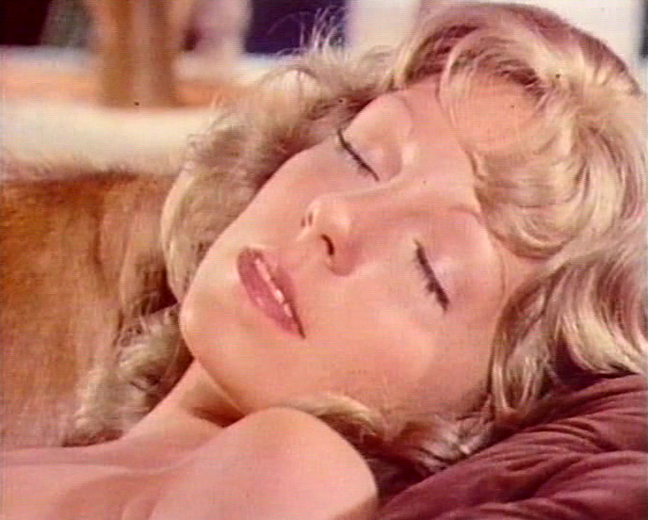

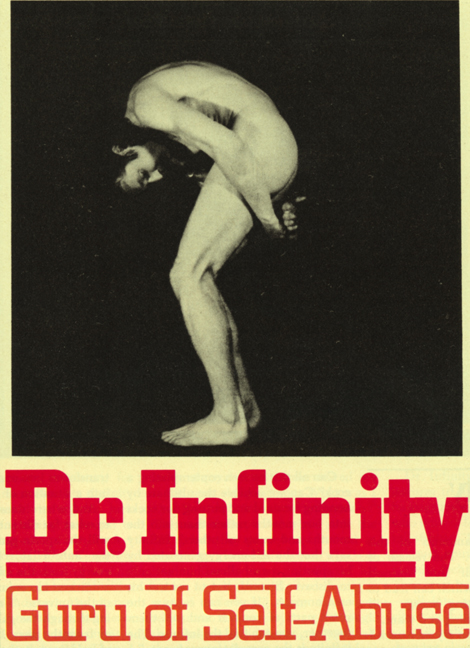
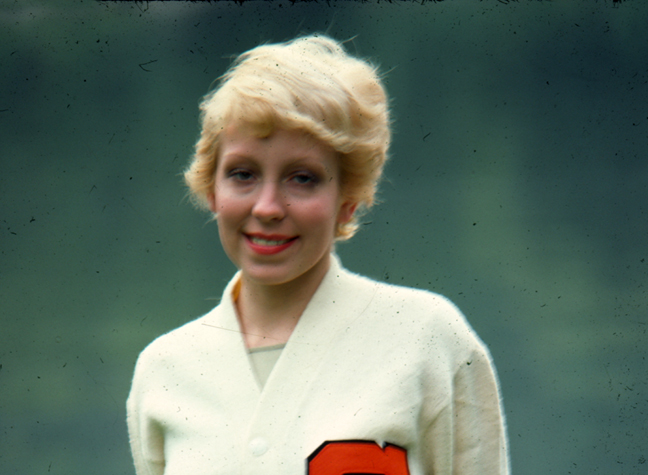
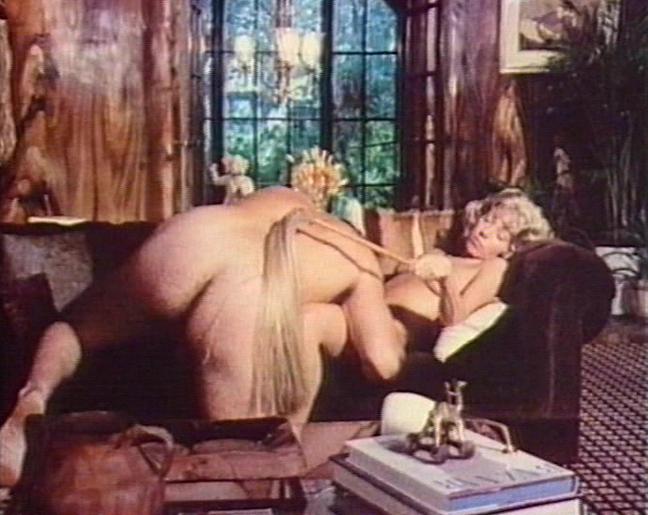
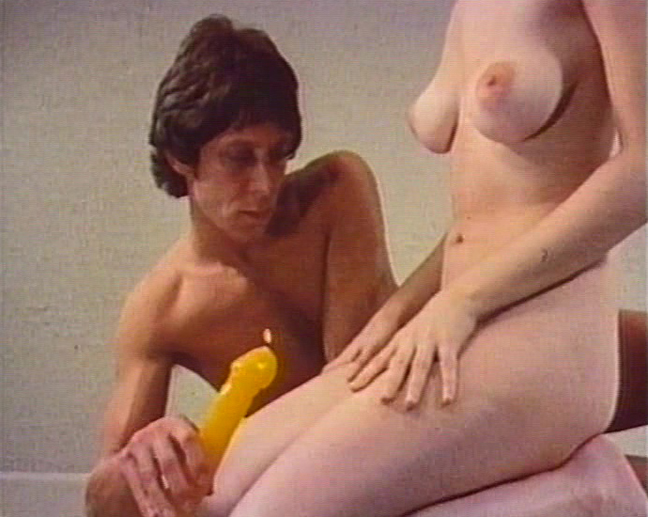
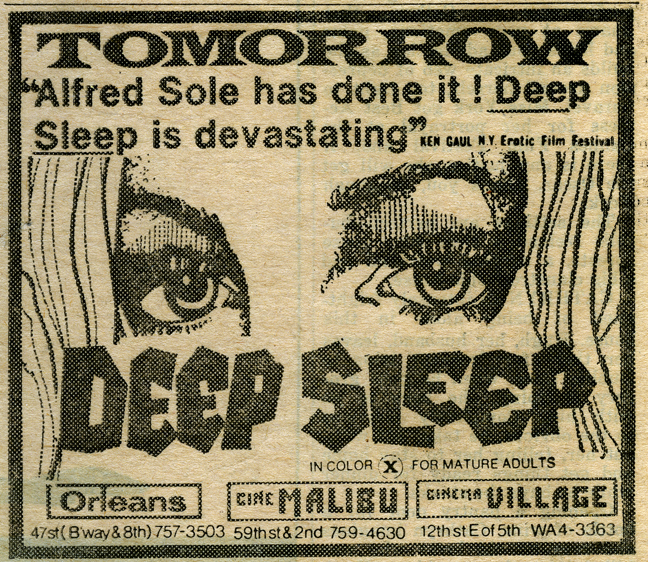
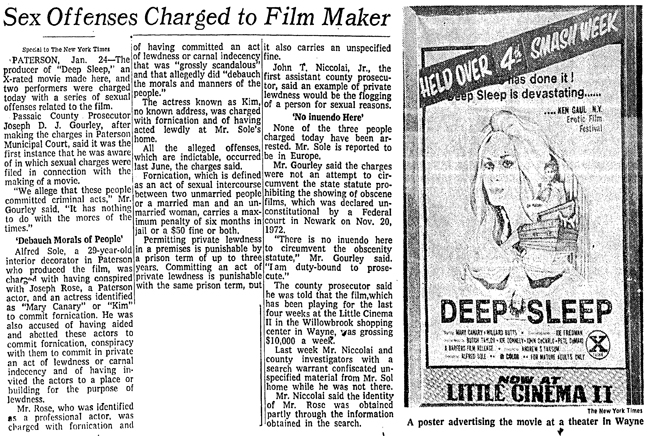
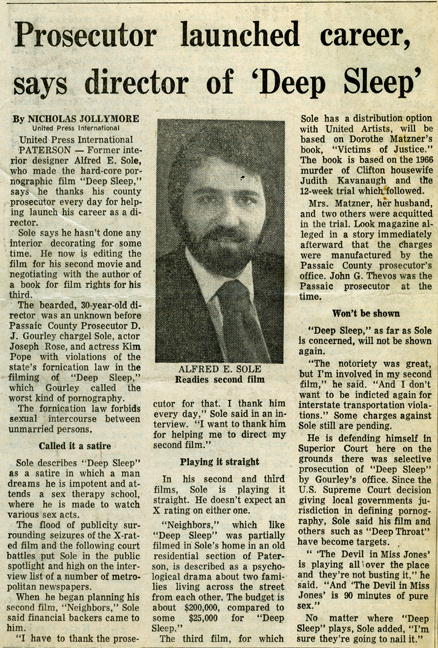
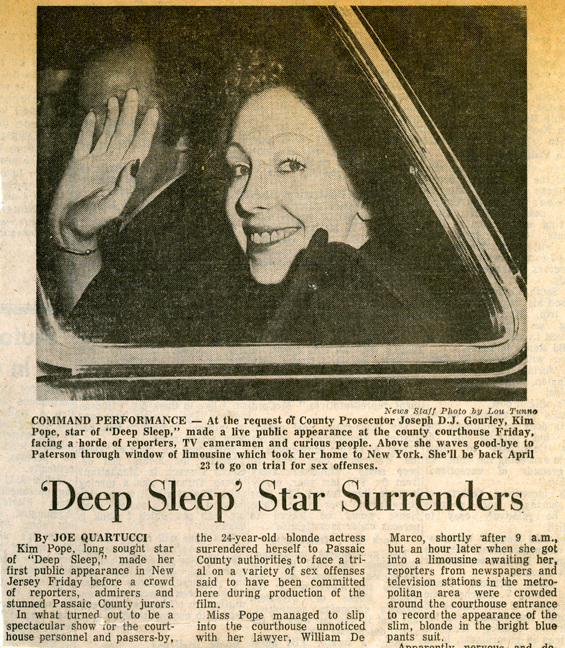
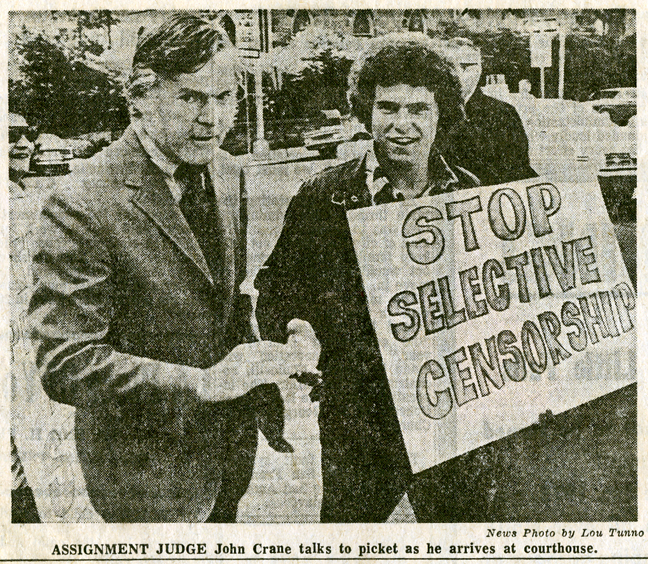
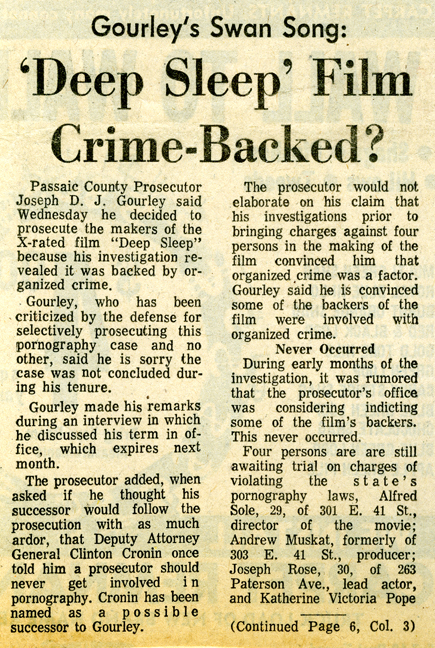
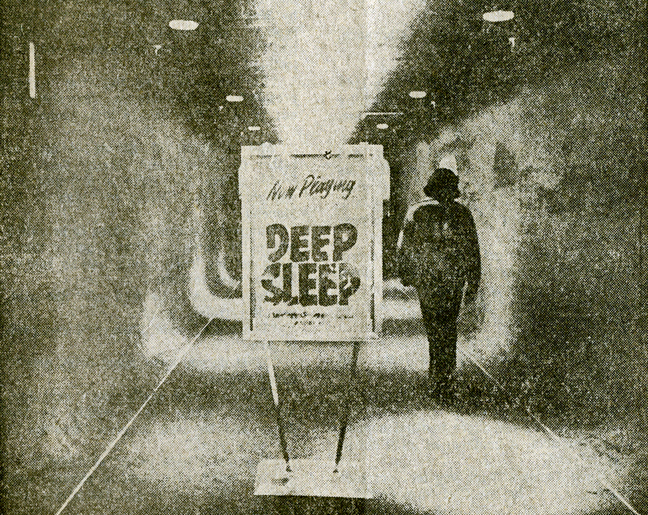
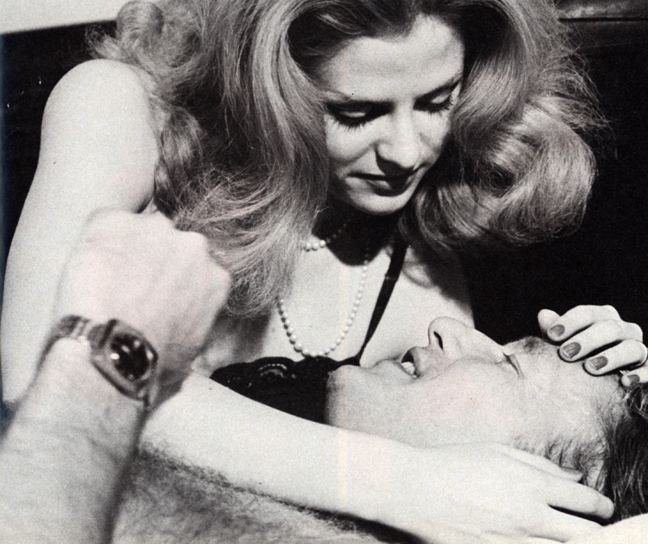
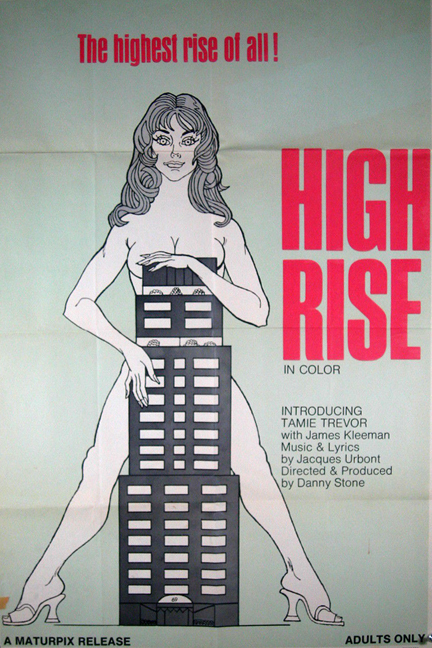

Fabulous to have this podcast reposted.
It was my introduction to The Rialto Report, and remains one of my favorites as it encapsulates so much of what I love about this site….. film history, the 70s, and so much humanity and sensitivity.
THANKS!!!!!!!!
Thank you so much Hodgey!
I dig the interviews, I dig the pics, I dig the stories, I DIG THE RIALTO REPORT.
Pure quality!
Thanks Kay!
We so appreciate it Walt!
Still hard to believe what Alfred, Kim and the others went through for making this movie. “Conspiracy to commit acts of carnal indecency”, and “Private lewdness”. Wow!
An excellent podcast to repost! Many thanks Rialto!
Thank you Al!
I have to say, I was 1000 more entertained by this report than I was last night at the movies. Thanks. And great job as always!
We so appreciate that Drew!
I had worked on four different shows with Alfred… A very interesting, talented and totally charming man who you would never suspect of breaking into HOLLYWOOD through porn.
As for DEEP SLEEP and it’s legal sideshow exposure… it is just one of numerous similar stories that were played out in the 70’s courts and press, manipulated and used to promote the planned social engineering distraction that both porn and HOLLYWOOD itself do so very well!
If only the real ONCE UPON A TIME IN HOLLYWOOD story could be told, it would make even the porn business blush!
So glad you’ve had the pleasure of working with Alfred. He’s so talented and kind and the opposite of the stereotype of the sleazy pornographer!
can you do an update on tantala ray??
Is there any way to find a copy of the actual film? This episode was fascinating!!!
Thank you! No official film release but you can find some bootlegs floating out there…
Alfred Sole picked up my friend Joe Donnelly and myself in a white Rolls Royce one night and took to the editors office in NYC. He learned about us because Alfred’s wife worked with Joe’s mom. We watched the rough cuts on a small screen on the editors desk, to get an idea of what the movie was about.
Joe and I went home and wrote 3 songs for 3 different scenes, and presented them to Alfred, and he liked them right away.
We started rehearsing in Alfred’s basement with Joe and I, and Butch on drums and piano, and John on bass. Joe and I sang and played guitar with Butch and John, and recorded the soundtrack in one night. Butch and John also recorded the more instrumental music that they wrote for other various scenes in the film. The songs with Vocals and lyrics were written by Joe and I.
Harry can you do it, can you get it up one more time….
Eat out tonight……
Ooda down in the hammock…..
So I am sitting here watching ‘Alice, Sweet Alice’ on Tubi.tv; it is fantastical and reminds me of my days in Cincinnati at the Race St Theater in the 1980’s and my introduction to John Waters and hundreds of other filmazings. But everyone looks familiar and it wasn’t filmed in New York. Where? When? Why does everyone look so familiar? Isn’t that Brooke Shields?
I start reading – and watching the film. (This is a pretty good movie – I thought it was just a straight slasher flic.) Leads me here.
Mr. Sole needs a biographer, preferably someone who has always wanted to write a biography but hasn’t.
Thank you so much for putting this up, doing the work, and thanks to all for the comments.
People can, as if by accident, do amazing things.
This was only his second film?
Grand juries will indict a ham sandwich – search it.
Hat tip to Don’t Look Now. (What is it about littl girls/critters in bright colored rain slickers that is scary?)
Is that the bridge from The Sopranos?
(Will never read William Carlos Williams the same way.)
I don’t think I’ve disliked anyone like I dislike that smug prosecutor.
Seems as though the Hypocritical Moralist never go away. Another great report
I’m fairly new to The Rialto Report – but I’m making up for lost time! Yesterday I was gobsmacked by the depth of the investigation into the mystery of Dolly Sharp/Helen Wood. Tonight I sat rapt, listening to the Deep Sleep podcast. Again, absolutely knocked out by the depth and quality of this reportage. The professionalism, thoroughness, and empathy you bring to the subject at hand is incredible. It’s refreshing to witness this level of recognition and respect toward the pioneers of the porn industry – where it has been overdue for such a long time. By peering beneath the veneer of the official narrative, you really bring the humanity and integrity of performers and filmmakers of the Golden Age right to the fore, where it belongs.
One more thing I’d like to add: the music choices you’ve made to soundtrack each story (in the two podcasts I’ve listened to) have been spot on. Together with the narration, interviews, and ‘atmos inserts’ (as it were) I’ve just been propelled back through time and space to a vastly different, somewhat less cynical planet. It’s been quite a ride!
Thank you!
Stephen.
Great back story on this! Loved the music as always!
MISTYK the DJ